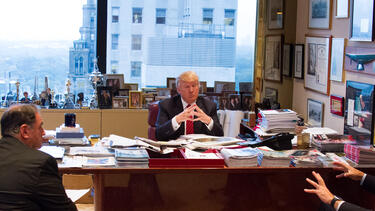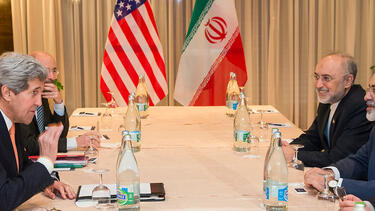Leadership
The Lessons from Pope Francis for the Class of 2025
Yale SOM leadership expert Jeffrey Sonnenfeld reflects on what the next generation of leaders can learn from the late pope.

Where Does Gender Bias Remain?
Cathy Ashton, the former high representative of the European Union for foreign affairs, on the structural and implicit biases that keep women from getting equal access to many opportunities.
How Do You Encourage Innovation?
Experts discuss how to manage, organize, hire, and reward for innovation.

How DuPont's Directors Failed
CEO Ellen Kullman's departure is one of many examples of dysfunctional corporate boards making rash decisions.
What’s Your Mission?
Yale SOM’s James Baron on the ingredients for an effective mission statement.

How Do You Become a Leader?
Herminia Ibarra of INSEAD on the personal evolution required to transition into a leadership position.

What Can We Learn from Trump?
Leadership scholar Jeffrey Sonnenfeld and political scientist Jacob Hacker, who recently sat down for an hour-long conversation with Donald Trump, discuss their impressions of the man and the current moment in political history.

What Can Aviation Teach Business about Managing Errors?
Professor Jan Hagen of the European School of Management and Technology (ESMT) on the aviation industry's open, immediate, and blame-free approach to errors.

Why the ‘Dump Trump’ Strategy is Doomed
In a Fortune magazine article, Professor Jeffrey Sonnenfeld suggests that political rivals who underestimate Donald Trump—and the myth surrounding him—do so at their own peril.
How Can Companies Take Responsibility for Major Accidents?
Naomi Hirose ’83, president of the Tokyo Electric Power Company (TEPCO), the operator of the Fukushima Daiichi nuclear power plant, discusses his company’s efforts since the 2011 tsunami and nuclear meltdown.
Putting the Iran Nuclear Deal in Context
Professor Paul Bracken, a leading security strategist and author of The Second Nuclear Age, discusses the Iran nuclear deal.
